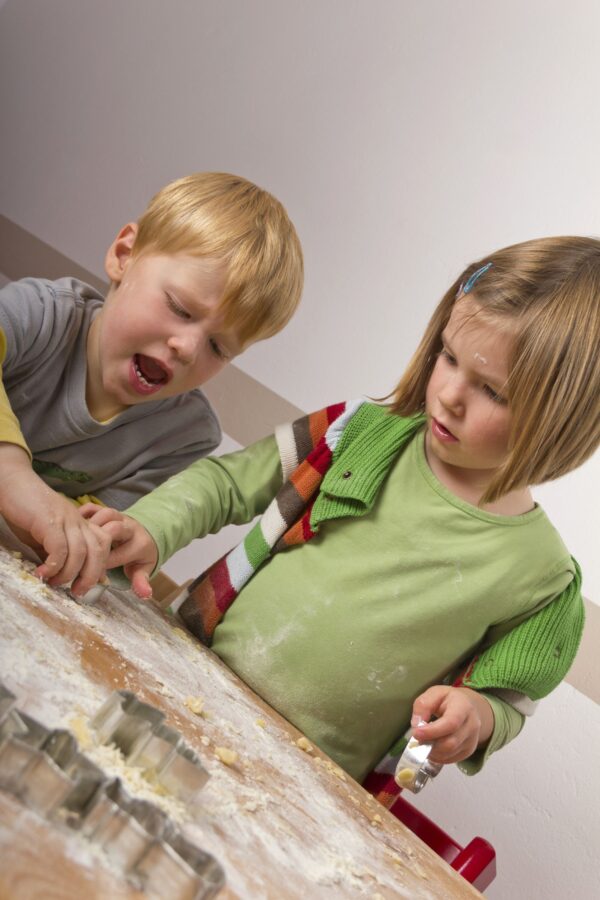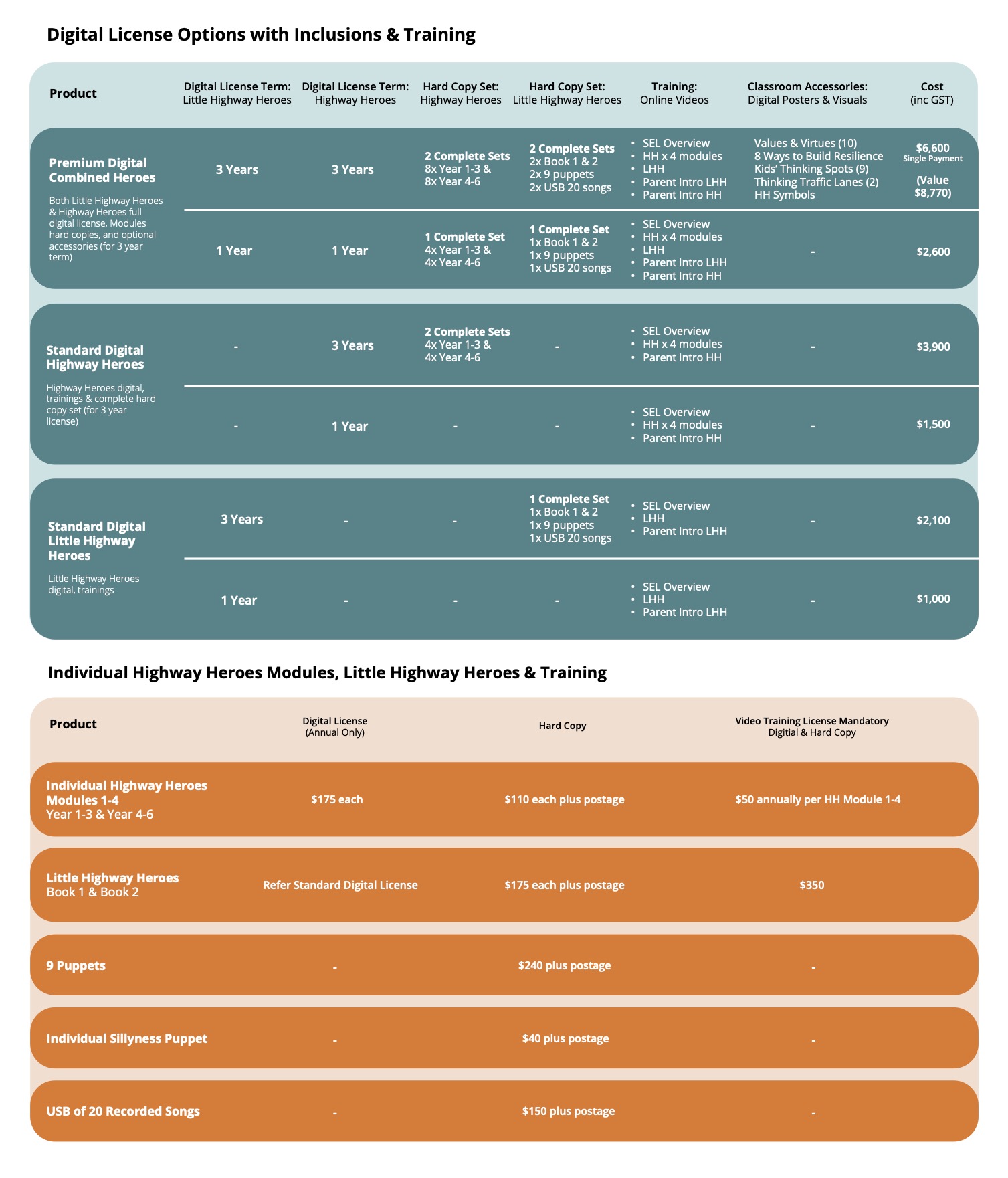I had a friend once, whose eldest child chopped off their new baby sister’s pinky finger with a pair of child-safety scissors. Once you get over the amazement that ‘safety’ doesn’t include newborn fingers, you can start to appreciate what must have been happening for the older child now sharing parental attention with something cute and pink and very attention grabbing.
This can be quite normal in homes when new babies arrive on the scene. Some families simply slide in the new addition without too much fuss and other families despair over the arrival of the green-eyed sibling monster who really doesn’t want the new addition to stay.
Jealousy happens in childhood – it’s a normal human emotion. It’s usually an expression of anger and possessiveness and happens when a child sees their value as being threatened. However, when it hangs around and starts to grow, the results can be anything from mildly annoying to absolutely catastrophic.
The common presentations of the green-eyed monster
- Sibling jealousy – doing things better, being seen as the more popular child, being seen to get more – attention and resources, being able to access age-related privileges earlier, being more socially popular.
What can parents do? Parents are well advised to nip this behaviour in the bud – quickly. Try not to compare children socially, physically, emotionally, academically. Every child is a whole new package and like anything that’s absolutely unique it’s as useless as comparing oranges and apples. Celebrate difference. Acknowledge the strengths of each. And DO NOT get involved in defensive arguments about treating everyone the same. It doesn’t work and usually it makes things much worse.
- Social jealousy – children comparing themselves to their peers, feeling left out, feeling that one friend is given more attention than themselves, counting how many parties they’ve been invited to compared to other friends, comparing popularity. This is destructive for children who often find ‘evidence’ that doesn’t really exist to firm up their green-tinged beliefs.
What can parents do? Acknowledge your child’s feelings first and foremost. When the green-eyed monster is lurking, children need to feel valued and heard. No, that doesn’t mean agreeing with your child – just acknowledging their hurt and confusion. Parents also need to firm up a child’s sense of self and their strong friendships. What can happen to help your child feel valued and included? A play date, a sleepover?
- Possessions jealousy – it’s common for children to see what other children have and become jealous. The new gaming console, brand name clothing – you name it, children can become very jealous over what other kids have – and how much. There’s important life learning in this jealousy – in fact, when it happens, it’s a great teaching moment for parents and a life-learning moment for children.
What can parents do? Start early the talks about how all families do things differently. The concept of ‘Love Languages’ is useful for the older child. Some families show love through material things, other families through experiences, others through acts of service. Every family has their very own love language – what’s your family’s love language?
Jealously over possessions can also be a sensational way for children to learn about saving. Turn that jealousy into drive – if you want those fancy shoes then this is how many chores you’re going to have to do over this many weeks to get them. Jealousy isn’t always bad – sometimes it can motivate some very driven and focused behaviour in children so parents are best advised to harness it and drive it towards a good outcome.
- Achievement jealousy – Children achieve milestones – physical, intellectual, talent specific – at different times. For the child left behind or not as gifted in a particular area of interest than another, it can be really difficult to applaud another’s achievements. The green-eyed monster hangs around a lot in circles of children where skills are out on show – the classroom, the sporting field, within hobbies.
What can parents do? Being the best me that I can be – it’s a daily message from parent to child. As a parent, do you comment positively or negatively on the achievements of others? Do you say, with some jealousy, “I don’t know how he got that promotion’? Comparison of skills and achievements with others is usually useless behaviour – but being the best version of yourself that you can be – that’s inspiring. The saying, “Be yourself, everyone else is taken” is a lovely saying to promote with children. Notice and celebrate their achievements.
Areas of jealousy achievement-wise can also be a pointer for parents in what to get a bit more help in for their child or to start some more regular practise. The child is clearly saying, ‘I want to be better in this skill’ so follow that along and use it as the carrot to help them achieve a little more – for themselves – not to be the best.
What to do and when to get worried
Jealousy is a very uncomfortable emotion and can be damaging to relationships – with siblings, friends, with learning. We’ve all been there at some point in life, in fact, it is as common in adulthood as it is in childhood.
Jealousy can be used to help a child to be more, achieve more, save more – but it can also become toxic. The green-eyed monster can grow and grow and fill up a child’s complete focus and attention. Here are the signs that your child is going to need some help in taming their green-eyed monster:
- Explosive emotional rants and rages
- Malicious behaviour to discredit or bring someone down
- Stalking behaviour – following every move and being emotionally consumed by it
If you notice these behaviours, reach out for some professional help and guidance. Jealousy is corrosive to self and relationships if it grows wild and out of control. As parents, our job is to guide our children into healthy relationships with themselves and with others, so actively managing incidences of jealousy as a normal childhood and a way to teach valuing and celebrating of their own unique packages of skills and attributes – and those of others too.
To find out more about BEST Programs 4 Kids’ resources for children, parents, educators and health professionals, take a further look through our website. We also welcome emails (really!) at [email protected]. We’re the Children’s Wellbeing Experts – and it’s our mission to help you become one too.


